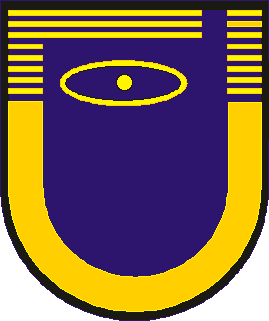 |
Institute of Physics
University of Latvia
IPUL-MHD Fifth Framework Project
| |
Workpackage No 2
Work package number and title:
2. Invitation of the leading experts in the field
of magnetic fluids to IPUL
Type of activity: Invited experts (V1)
Relative start month: 0
Timetable: first year – ¾ month, second year – 1 month; third year
– ¼ month (altogether 2 months)
Objectives:
- Institute of Physics has established a fruitful
collaboration with the Magnetic Fluid Research group of the Center of Applied Microgravity Research (ZARM), University
of Bremen. The group is very well technically and
experimentally equipped; its leader Dr. S. Odenbach is an internationally
recognized high level specialist in experimental
ferrohydrodynamics. The group performs excellent experiments
in magnetoviscosity and heat and mass transfer including those of thermodiffusive separation but employing a technique different
of that used in the Institute of Physics and planed
in WP7. The aim of the present WP is to coordinate the mutual activities,
to discuss the results obtained in both centers and
to prepare common publications on the research proposed
in the work plan of activity WP7. Dr. Stefan Odenbach is one of coordinators
for a special program of German Physical Society on
Magnetic Fluid Research. Therefore, the collaboration
with him and with his research group will stimulate contacts between the
Institute of Physics in Latvia and other research
groups in Germany in order to broaden the scientific collaboration and to find partners for participation in the EC
networking programs in future.
- Since according to the working plan of the package
on the magnetic fluids the analysis of the field induced
phase transformations is supposed then crucial significance in that research
plays the knowledge of the physical parameters of
the magnetic colloids determining the interfacial properties
of the arising phases. The information on those properties can be obtained
from the small angle neutron scattering data. Since
the researchers of P. M. Curie University Paris 6 are well known specialists in that field then their participation
in the work of Center is very important.
- At present moment different new experimental techniques
are developing for the investigation of the biological
systems. Among them the important role are played by techniques using magnetic
particles interacting with different biological
media - DNA, membranes, intracellular matrix and other.
From other hand in Institute of Physics and Faculty of Physics and Mathematics
exists long experience concerning the interaction
of the magnetic particles and their ensembles with magnetic fields. Application of the accumulated knowledge to the opening
new opportunities is of very importance as for development
of Latvia and its partners. Due to that the serie of lectures given by world leading specialist on the subject of application of magnetic
particles to biological systems is of primary importance.
|
[Institute of Physics of University of Latvia, 2003]
|
|